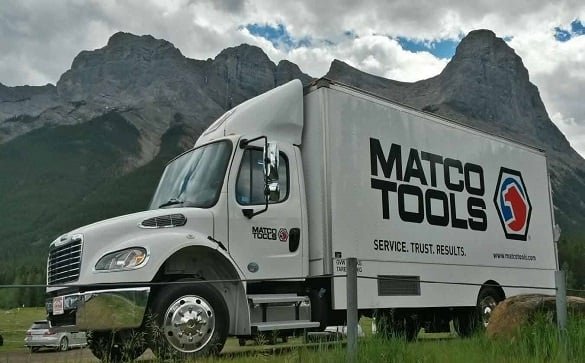The mobile tool truck franchise model, popularized by companies like Matco Tools, offers a unique business opportunity. However, like any franchise, it comes with its own set of challenges. This article delves into the factors contributing to the Matco franchise failure rate and provides insights for potential franchisees.
The Matco Franchise Model
Before examining the failure rate, it’s crucial to understand the Matco Franchise Failure Rate business model. Franchisees operate mobile tool trucks, selling tools and equipment to professional mechanics and technicians. This model offers flexibility and independence but demands strong sales skills, time management, and a deep understanding of the automotive industry.
Matco Franchise Failure Rate: A Complex Picture
Determining a precise Matco franchise failure rate is challenging due to several factors:
- Data Limitations: Reliable data on franchise failure rates is often limited, especially at the granular level of individual franchises.
- Defining Failure: The definition of failure can vary. It might refer to bankruptcy, closure, or simply not meeting the franchisee’s expectations.
- Industry-Wide Challenges: The automotive industry itself faces fluctuations, which can impact tool sales and, consequently, franchise performance.
Factors Contributing to Matco Franchise Failures
Several factors can contribute to the challenges faced by Matco franchisees:
- Economic Conditions: Economic downturns or changes in consumer spending can impact tool sales.
- Competition: The mobile tool truck industry is competitive, with other brands like Snap-on vying for the same customer base.
- Sales Skills: Success in the role requires strong sales and relationship-building abilities.
- Time Management: Effective time management is essential for balancing sales, customer service, and inventory management.
- Market Saturation: In some areas, the market might be saturated with mobile tool trucks, making it difficult to acquire new customers.
- Financial Management: Proper financial planning and management are crucial for long-term success.
Success Stories and Best Practices
While challenges exist, many Matco franchisees achieve significant success. Key factors for success include:
- Strong Sales Focus: Building relationships with customers and providing excellent service is essential.
- Effective Route Management: Optimizing the sales route to maximize efficiency and customer coverage.
- Inventory Control: Maintaining a well-stocked inventory while avoiding overstocking is crucial.
- Financial Discipline: Careful budgeting and financial planning are essential for long-term viability.
- Continuous Learning: Staying updated on industry trends and product knowledge is vital.
Tips for Potential Franchisees
If you’re considering a Matco Franchise Failure Rate, consider the following:
- Thorough Research: Understand the industry, the company, and the franchise model in detail.
- Financial Planning: Develop a solid business plan and financial projections.
- Sales Aptitude: Assess your sales skills and ability to build relationships.
- Time Commitment: Be prepared for long hours and a demanding schedule.
- Market Analysis: Evaluate the potential market for your franchise location.
By carefully evaluating these factors and leveraging the support provided by Matco Franchise Failure Rate, aspiring franchisees can increase their chances of success.
Matco Franchise: A Deeper Dive into Costs and Earnings
Initial Investment and Ongoing Costs
Starting a Matco Franchise Failure Rate requires a significant financial commitment. Key cost components include:
- Franchise Fee: This is a one-time payment to the franchisor for the right to operate a Matco franchise.
- Inventory: Purchasing an initial inventory of tools and equipment is a substantial expense.
- Vehicle: A suitable vehicle for transporting the tools is necessary.
- Equipment: Additional equipment, such as displays and point-of-sale systems, might be required.
- Operating Expenses: Ongoing costs include insurance, fuel, vehicle maintenance, and marketing expenses.
It’s essential to create a detailed financial projection to understand the overall investment and potential return on investment.
Earning Potential
The earning potential of a Matco Franchise Failure Rate varies depending on several factors, including:
- Sales Performance: The ability to generate sales is directly linked to earnings.
- Market Conditions: The economic climate and competition can impact sales and profitability.
- Cost Management: Efficiently managing operating expenses is crucial for maximizing profits.
- Business Experience: Prior business experience can contribute to success.
While Matco Franchise Failure Rate provides potential earnings estimates, it’s essential to approach these figures with caution. Actual earnings can fluctuate significantly.
Support from Matco
Matco offers various support services to its franchisees, including:
- Initial Training: Comprehensive training on sales techniques, product knowledge, and business operations.
- Ongoing Support: Continued training and support to help franchisees succeed.
- Marketing Assistance: Support with marketing materials and promotional campaigns.
- Inventory Management: Assistance with inventory control and ordering.
Leveraging these support services can significantly enhance the chances of franchise success.
Challenges and Opportunities
The Matco Franchise Failure Rate model presents both challenges and opportunities. Challenges include intense competition, economic fluctuations, and the need for consistent sales performance. However, opportunities lie in building strong customer relationships, expanding the customer base, and staying updated with industry trends.
Conclusion
The Matco franchise offers a potential path to entrepreneurship in the automotive industry. However, it requires a significant investment, strong sales skills, and effective business management. By carefully assessing the opportunities and challenges, potential franchisees can make informed decisions.
